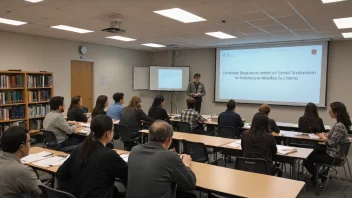Medical research plays a crucial role in shaping health policies that govern healthcare delivery, disease prevention, and population health management. As scientific discoveries and advancements in medicine evolve, they provide the evidence necessary for policymakers to create informed decisions that can lead to improved health outcomes for populations. This article explores how medical research influences health policies, the mechanisms involved, and the implications of these policies on society at large. One of the primary ways medical research informs health policy is through the generation of robust evidence regarding the effectiveness of interventions and treatments. For instance, studies that demonstrate the efficacy of vaccines in preventing infectious diseases have led to the implementation of vaccination programs worldwide. Such evidence not only highlights the importance of immunization but also drives policies that require vaccinations for school enrollment, thereby protecting public health. Additionally, medical research uncovers the social determinants of health, which are crucial in understanding health disparities among different populations. Research on factors such as socioeconomic status, education, and access to healthcare can prompt policymakers to develop targeted interventions aimed at reducing health inequities. For example, studies showing the correlation between low-income neighborhoods and higher rates of chronic diseases can lead to policies that allocate resources to underserved communities, increasing access to preventive care and health education. Furthermore, medical research fosters innovation in healthcare technologies and practices, which can significantly influence health policies. Research findings that demonstrate the benefits of telemedicine, for instance, have spurred policy changes that expand reimbursement for remote consultations. This shift not only enhances access to care for patients in remote or underserved areas but also encourages healthcare providers to adopt new technologies in their practice, ultimately improving patient outcomes. The relationship between medical research and health policy is also reciprocal. Policymakers often instigate research by identifying critical health issues that require investigation. For example, the opioid crisis has prompted numerous studies aimed at understanding addiction mechanisms, effective treatment modalities, and prevention strategies. The findings from this research have directly influenced policies surrounding opioid prescribing practices, addiction treatment funding, and public health campaigns. However, the integration of medical research into health policy is not without challenges. Often, there is a time lag between the generation of research findings and their translation into policy, which can impede timely responses to emerging health threats. Additionally, the complexity of health systems and the multitude of stakeholders involved can complicate the implementation of research-backed policies. To overcome these challenges, it is essential for researchers, policymakers, and practitioners to collaborate closely. Engaging in dialogue, sharing data, and co-developing policies can enhance the translation of research into practice and ensure that health policies are reflective of the latest scientific knowledge. In conclusion, medical research is a cornerstone of health policy development. By providing evidence on effective interventions, uncovering social determinants of health, and fostering innovation, research shapes the landscape of healthcare delivery. As the medical field continues to evolve, the collaboration between researchers and policymakers will be vital in addressing current and future health challenges, ultimately improving the health and well-being of populations around the globe.
Transforming Health Policies Through Medical Research
Explore how medical research shapes health policies that impact healthcare delivery and population health management.






